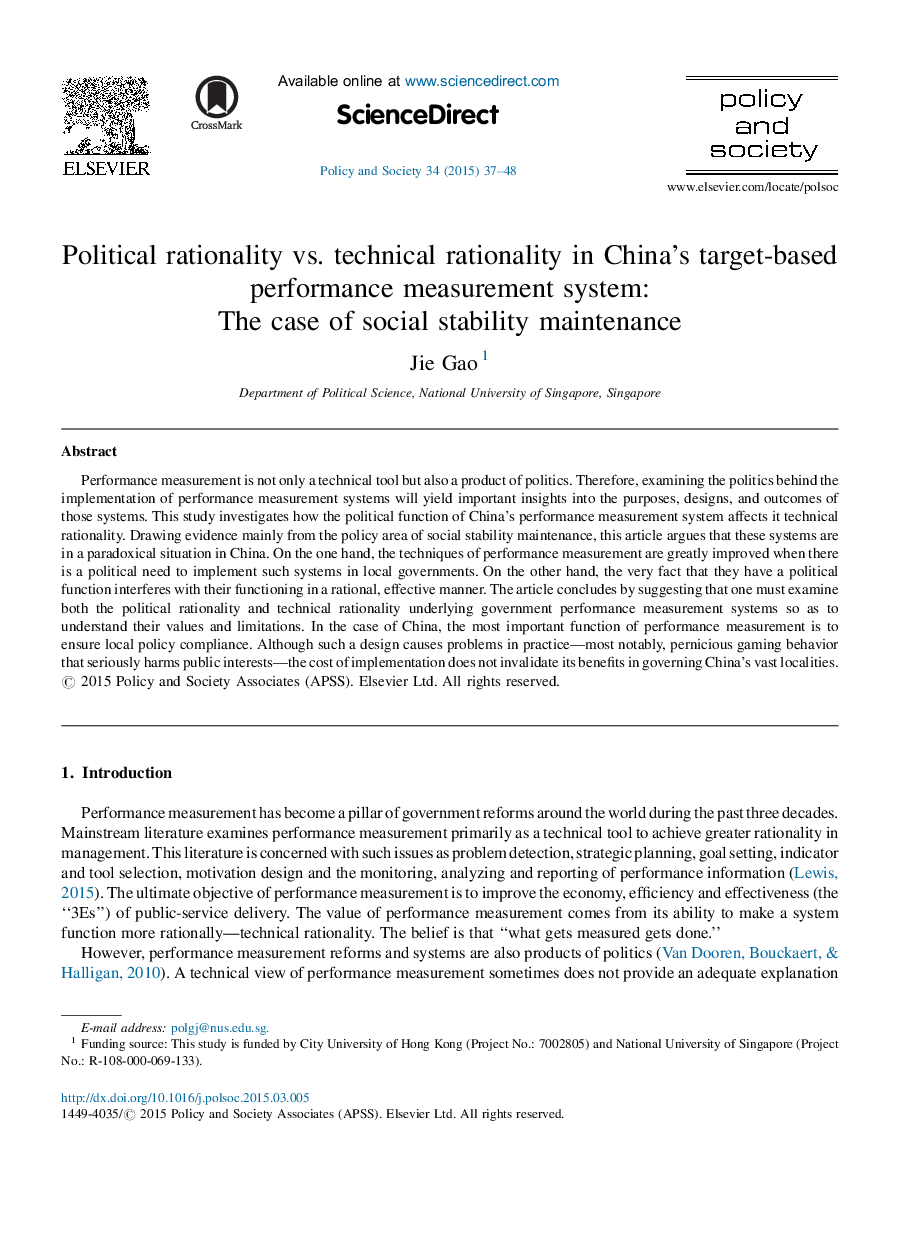| Article ID | Journal | Published Year | Pages | File Type |
|---|---|---|---|---|
| 1061518 | Policy and Society | 2015 | 12 Pages |
Performance measurement is not only a technical tool but also a product of politics. Therefore, examining the politics behind the implementation of performance measurement systems will yield important insights into the purposes, designs, and outcomes of those systems. This study investigates how the political function of China's performance measurement system affects it technical rationality. Drawing evidence mainly from the policy area of social stability maintenance, this article argues that these systems are in a paradoxical situation in China. On the one hand, the techniques of performance measurement are greatly improved when there is a political need to implement such systems in local governments. On the other hand, the very fact that they have a political function interferes with their functioning in a rational, effective manner. The article concludes by suggesting that one must examine both the political rationality and technical rationality underlying government performance measurement systems so as to understand their values and limitations. In the case of China, the most important function of performance measurement is to ensure local policy compliance. Although such a design causes problems in practice—most notably, pernicious gaming behavior that seriously harms public interests—the cost of implementation does not invalidate its benefits in governing China's vast localities.
